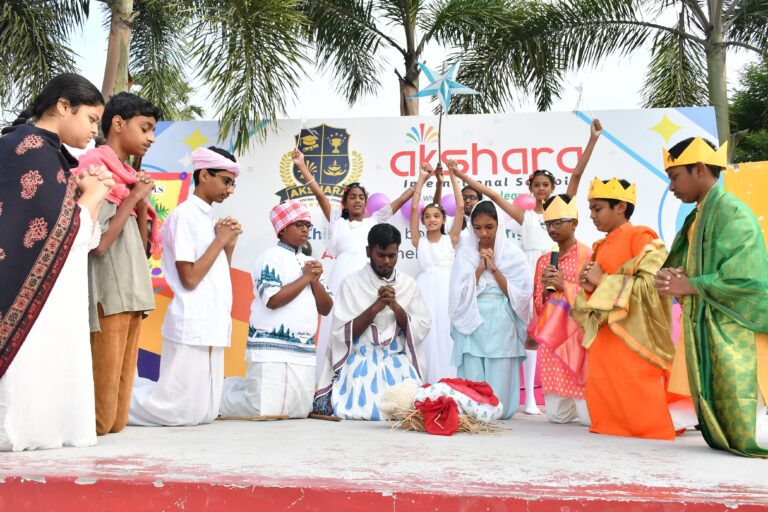Christmas is one of the most widely celebrated holidays worldwide. It transcends cultural, national, and religious boundaries, uniting people in a spirit of joy, generosity, and reflection. From snowy villages in the Northern Hemisphere to sunny beaches in the Southern Hemisphere, Christmas is a time for family, community, and celebration. But why is Christmas celebrated across the globe? Let’s explore the origins, significance, and diverse ways Christmas is observed around the world.
The Origins of Christmas
Christmas celebrates the birth of Jesus Christ, a central figure in Christianity, believed to have been born on December 25th in Bethlehem. Over the centuries, the religious significance of the holiday has been infused with cultural traditions, making Christmas a festive occasion that combines both religious and secular celebrations.
In the early Christian church, Christmas was not widely observed. However, by the 4th century, it became an established part of the liturgical calendar. The decision to celebrate on December 25th was likely chosen to coincide with Roman pagan festivals like the “Festival of Sol Invictus,” which marked the winter solstice. This created a blending of Christian and local customs, paving the way for the Christmas traditions we recognize today.
The Global Spread of Christmas
Christmas is celebrated in almost every corner of the world, though the ways it is observed may vary significantly depending on the country or culture. The reason for Christmas’ widespread celebration can be attributed to both its Christian roots and the global influence of Western culture.
1. Religious Significance
For Christians, Christmas marks the birth of their savior, Jesus Christ. As the Christian faith spread across continents through missionaries and explorers, so did the tradition of celebrating Christmas. In countries with strong Christian communities, like those in Europe, the Americas, and parts of Africa and Asia, Christmas is deeply religious, with church services, prayers, and nativity scenes being central to the celebrations.
2. Commercialization and Secular Traditions
Beyond its religious significance, Christmas has become a global cultural event, driven by the commercialization of the holiday. In many places, it is not just about religious observance but also about spending time with loved ones, exchanging gifts, and enjoying festive foods. The influence of Hollywood, media, and retail industries has helped shape Christmas into a more universal holiday. Symbols such as Santa Claus, Christmas trees, and festive decorations have become part of the global celebration, even in countries where the holiday is not originally rooted in Christian tradition.
3. Globalization
In today’s interconnected world, globalization has played a crucial role in spreading Christmas traditions. The rise of global media, travel, and technology has made it easier for people worldwide to experience Christmas customs from other cultures. For instance, the Western concept of Santa Claus, popularized by Coca-Cola advertisements and movies, has spread far beyond its American origins to countries like Japan, China, and India. Even in predominantly non-Christian nations, Christmas decorations, shopping sales, and Christmas-themed entertainment have become widespread.
How Christmas is Celebrated Around the World
1. United States and Canada:
In North America, Christmas is a blend of religious and secular traditions. Families attend church services, set up elaborate Christmas trees, and exchange gifts. Santa Claus plays a central role in the holiday, with children eagerly awaiting his arrival on Christmas Eve. Christmas lights, parades, and festive markets are common in cities across the United States and Canada.
2. Europe:
In Europe, Christmas is celebrated with rich cultural traditions. In Germany, Christmas markets (Christkindlmarkt) are a famous part of the holiday season, with vendors selling crafts, food, and decorations. In the UK, Boxing Day is a tradition following Christmas, where people give gifts to the less fortunate and enjoy leftovers from Christmas dinner. In Italy, Christmas celebrations are often centered around a family meal, with many attending midnight Mass and sharing the Feast of the Seven Fishes.
3. Latin America:
In many Latin American countries, Christmas is a deeply religious celebration. The “Nochebuena” (Christmas Eve) is a time for family gatherings, feasts, and attending church services. In Mexico, families often create elaborate nativity scenes, and in Puerto Rico, Christmas caroling (parrandas) is a popular tradition. “Las Posadas” is a unique Mexican tradition where participants reenact Mary and Joseph’s search for shelter.
4. Australia and New Zealand:
In the Southern Hemisphere, Christmas falls during the summer months, so many people celebrate with outdoor barbecues, beach outings, and picnics. Christmas trees are still a central part of the celebration, but the holiday atmosphere is more relaxed compared to the snowy settings of the North. Australians also enjoy Christmas lunches with seafood, ham, and tropical fruits.
5. Asia:
Christmas is a secular holiday in many parts of Asia, where it’s celebrated more as a cultural event than a religious one. In countries like Japan and South Korea, people may decorate their homes and exchange gifts, but it’s also a time for festive events and shopping. In the Philippines, however, Christmas is celebrated with deep religious devotion, with Mass and festive processions like the “Simbang Gabi” being important parts of the holiday season.
6. Middle East and Africa:
In many Middle Eastern countries, Christmas is celebrated by Christian communities with church services and family gatherings. In Egypt, the Coptic Orthodox Church celebrates Christmas on January 7th, and special foods like “fata” (a traditional lamb dish) are enjoyed. In parts of Africa, Christmas celebrations often include vibrant music, dance, and church services.
Conclusion
Christmas has evolved from a religious observance to a global celebration that brings people of all cultures and backgrounds together. Its widespread observance can be attributed to a combination of religious significance, cultural adaptation, and the global influence of Western traditions. Whether it’s through attending church services, enjoying a festive meal, or simply spending time with family and friends, Christmas serves as a reminder of the power of tradition, community, and shared joy.
No matter where you are in the world, Christmas is a time to celebrate love, kindness, and togetherness, and that’s why it’s cherished by millions of people across the globe.

